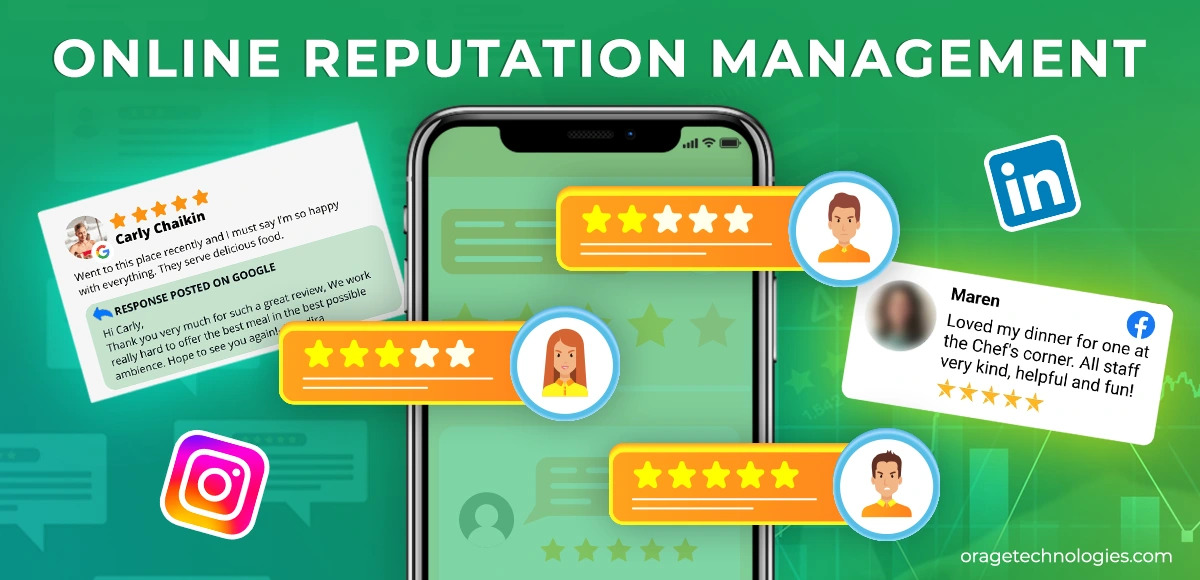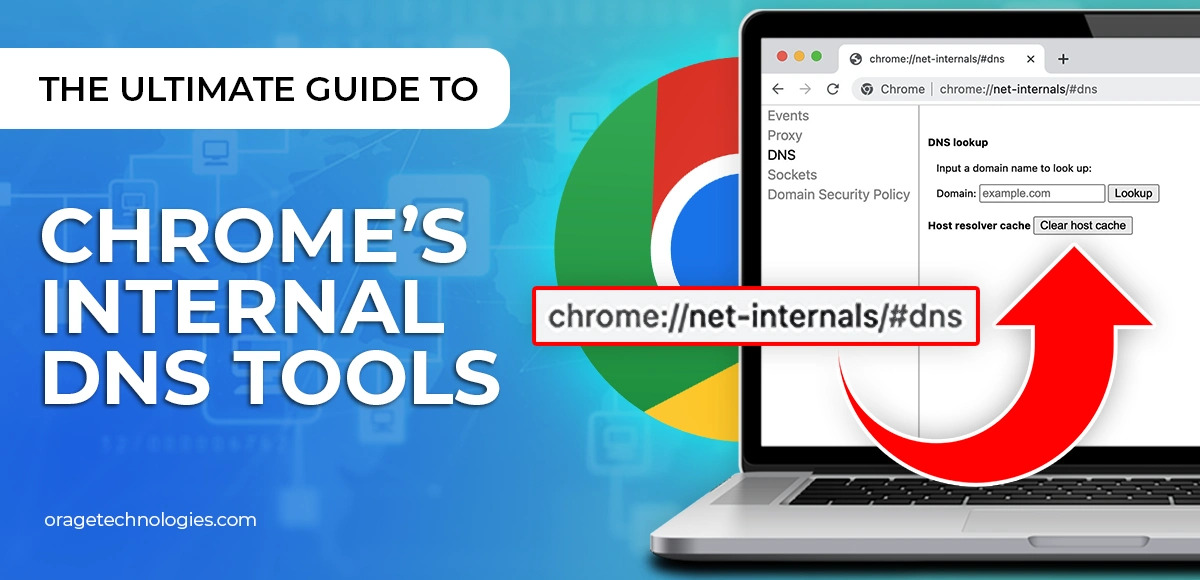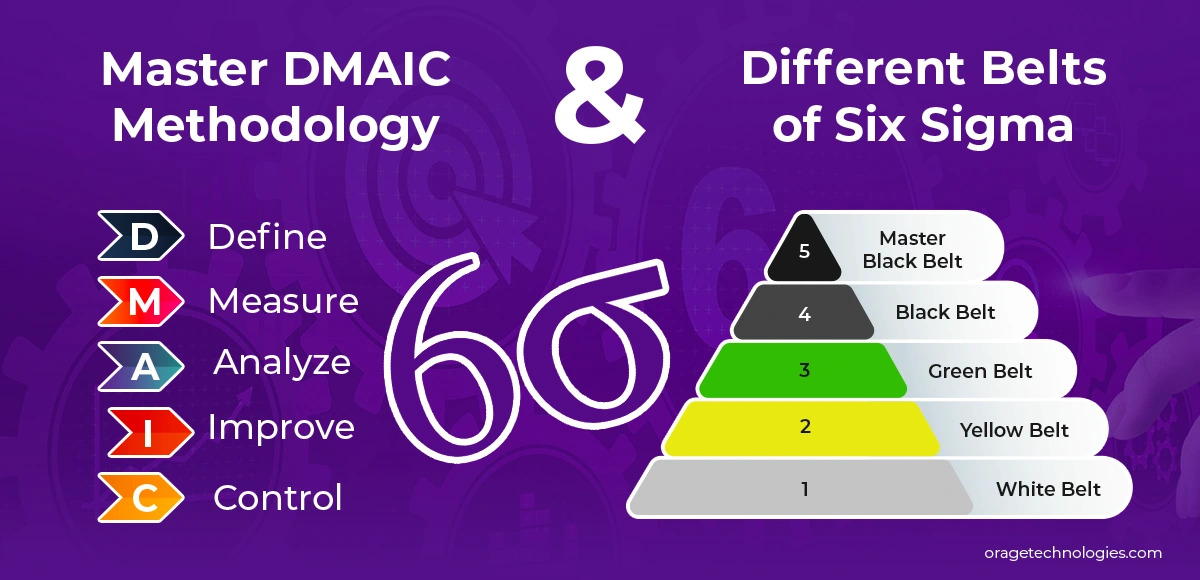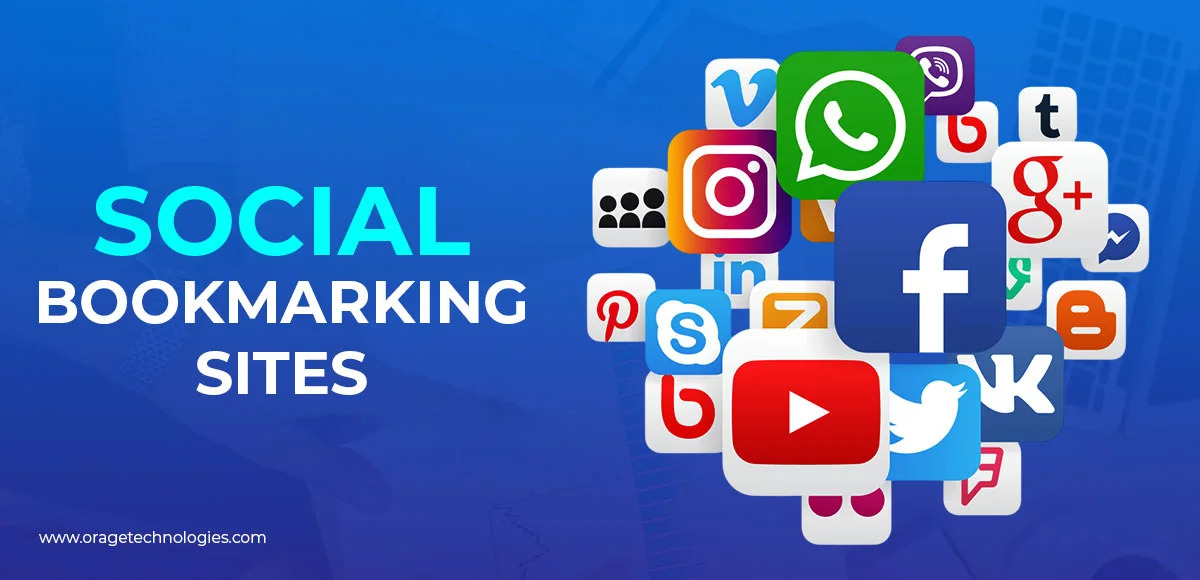Online Reputation Management: Why Your Brand’s Future Depends on It

In today’s digital-first marketplace, what people find online about your business helps shape their opinion before they ever talk to you. That invisible influence is the reason Online Reputation Management is no longer optional, and instead a critical pillar of brand success.
ORM goes beyond simply responding to bad reviews or news; it is a proactive and strategic practice that helps your brand manage its credibility, keep your story in your control, and build long-standing trust.
Let’s explore why this is important and how to help you build your business identity in a world that is more connected than ever.
What Is Online Reputation Management?
Online Reputation Management (ORM) is simply the act of monitoring, managing, and improving how a brand or person is perceived across digital channels. This encompasses search engines and reviews, websites, blog posts, social mentions, and feedback from customers.
The goal isn’t strictly just to eradicate negative content; it is to improve and enhance your overall image in such a way that whenever anyone hears your name, it is always associated with trust, value, and professionalism.
Why Your Reputation Matters More Than Your Business
Think about how most decisions are made today. Hiring freelancers, purchasing products, and selecting hotels - what's the first thing people do? Google it.
With a peek at your business' five-star ratings, clever content, and positive mentions, customers are much more likely to choose you opposed to one of your competitors. However, one bad review or one stagnant article could quickly cast doubt, even if it is outdated.
This is why Online Reputation Management can be your best friend. It allows you to:
Build credibility prior to the customer ever contacting you
Improve positioning in search engines
Attract investors, partners, and talent
Respond gracefully to criticism and misinformation
Increase loyalty and customer retention
Protect against unforeseen PR problems
A good reputation online not only supports your business - it drives your business.
Key Components of a Successful ORM Strategy
1. Brand Monitoring
The first step in managing your reputation is learning what's out there. Use monitoring tools to track mentions, hashtags, reviews, and articles from sources like Google, Twitter, Reddit, LinkedIn, and reviews sites. Consider setting up alerts to monitor them in real time.
2. Search Results Audit
Search engines are usually the first impression that someone gets of your brand. A reputation audit will take a look at what is showing up on the first page for your brand. Are you appearing with authoritative content and positive mentions—or old or irrelevant links?
If you want to control the narrative-you must start by enhancing your search presence.
3. Content Strategy
Positive content is a big way to push low-rung negative or irrelevant mentions lower in your search results. You can write blog posts, case studies, customer success stories, press releases, or videos that promote the expertise and values of your business.
Not only does this help your reputation-but it can also help with SEO.
4. Reviews
Reviews are aspects of your digital profile with significant impact. Encourage happy customers to write reviews, and be thoughtful in your replies to negative reviews. Sometimes even just writing a sincere, empathetic reply can help restore confidence in your business.
Consistent engagement sends a signal; that you care.
5. Social Media
Your social profiles serve as your brand's public voice. Participating in relevant discussions, replying to comments, and sharing valuable insights would help you build community, and strengthen audience trust and perception of your brand.
6. Sentiment Analysis
Not only should you acquire basic mentions, but you should also have a pulse on sentiment. Is there a lot of positive talk about your brand? Is there an issue that recurring? You can use actionable insights to change what you say or how you or your team serves them.
7. Internal Culture and Alignment
Your employees are your brand. To best instil all the values of your organisation, it’s important to align the messaging you send on the outside is authentic to values you are shouting on the inside. Employees should be well trained on the brand voice, how to act around customers, and interaction on social media to build your reputation.
Common Reputation Killer Mistakes
Even the best intentioned brands can make mistakes in overseeing and managing their perception online. Here are some common mistakes to avoid:
Only creating a response after a crisis has arisen: ORM needs to be proactive, not only reactive.
Only using automated response features: Personal responses are important in response to a review or complaint.
Overlooking smaller online venues: While these may not have the big numbers of the major platforms, they matter and these underserved forums (or niche blogs or even local review sites) can have an outsized impact on perception if left unattended.
Not updating content or knowledge: This can mislead (or confuse) potential customers.
If you have taken the steps mentioned above to have an effective strategy in the first place, you will be able to prevent all of the above and manage them before the sier repercussions arise.
The Evolution of Online Reputation Management
ORM evolves as the ways we engage online evolve. There are so many more tools and tactics available to businesses which allows ORM to be a bit less stagnant, and a little more agile.
Some trends affecting ORM are:
Sentiment tools using AI to measure tone and emotion
Reputation management dashboards that bring central control to various platforms
Localized ORM tactics in situations where ORM is city or area specific
Executive profile management as a way to create trust around an executive, founder or leader
Reputation scores as a KPI of business success
These developments are taking Online Reputation Management from reactive to proactive competitive advantage.
Closing Thoughts
Your digital reputation is more valuable than any billboard, ad, or email. It quietly provides assessment of your business long before a customer even interacts with your team or visits your website.
This is why a conscious and consistent approach to Online Reputation Management is important to your brand - and not just during a crisis on an exceptional basis.
In an arena where one comment or review could go viral, dont leave your reputation to chance. Developing, managing and protecting your reputation requires work each day.
Note: IndiBlogHub features both user-submitted and editorial content. We do not verify third-party contributions. Read our Disclaimer and Privacy Policyfor details.





